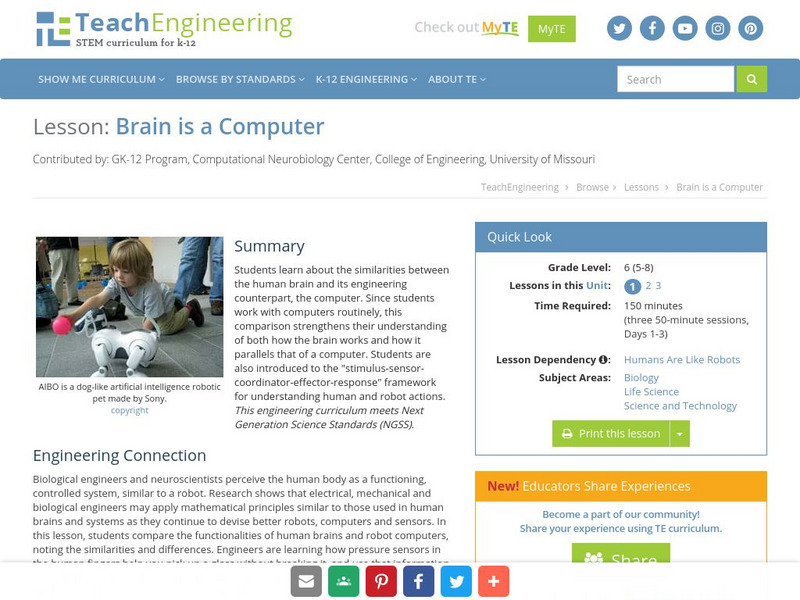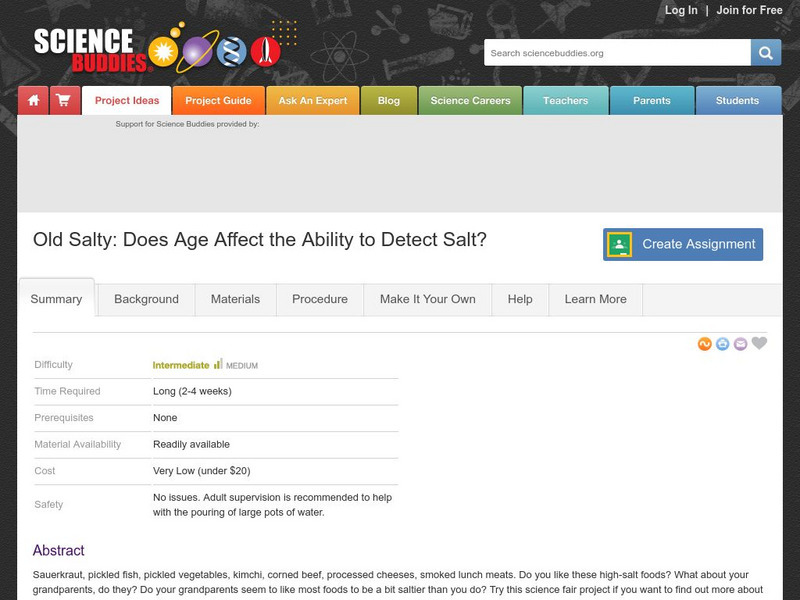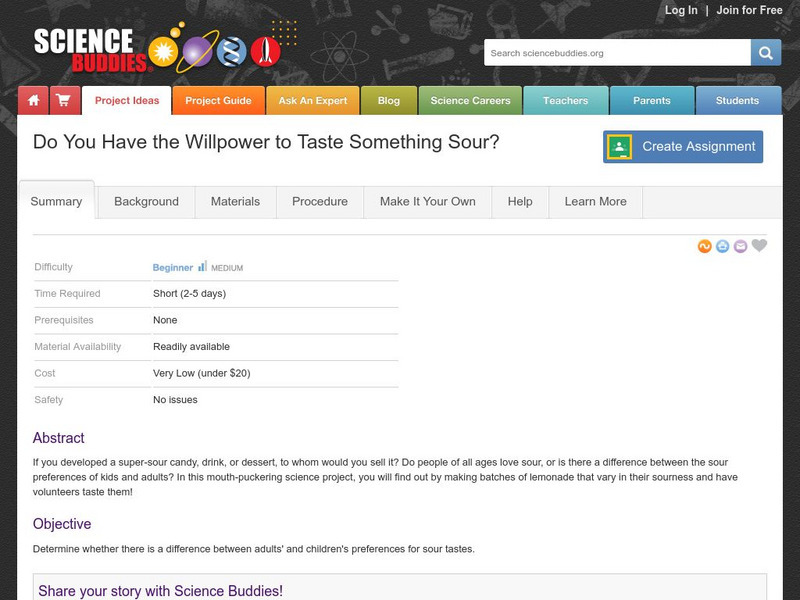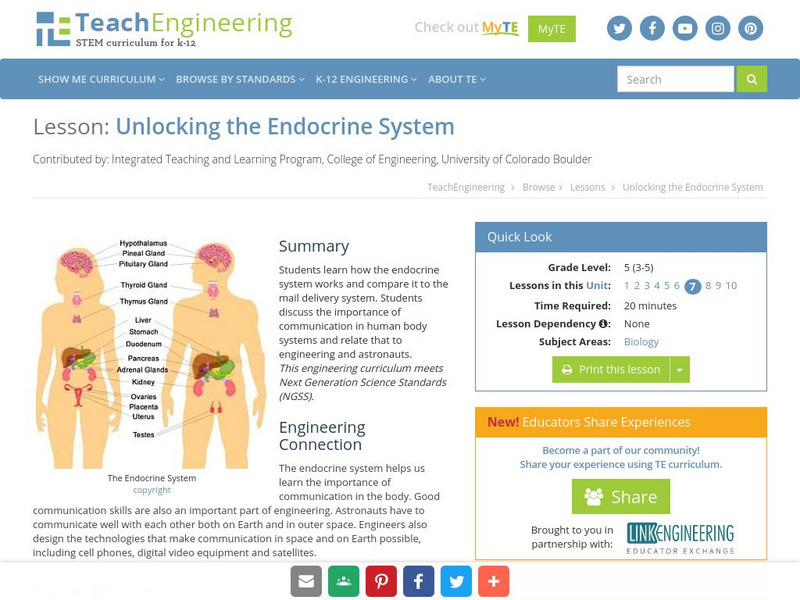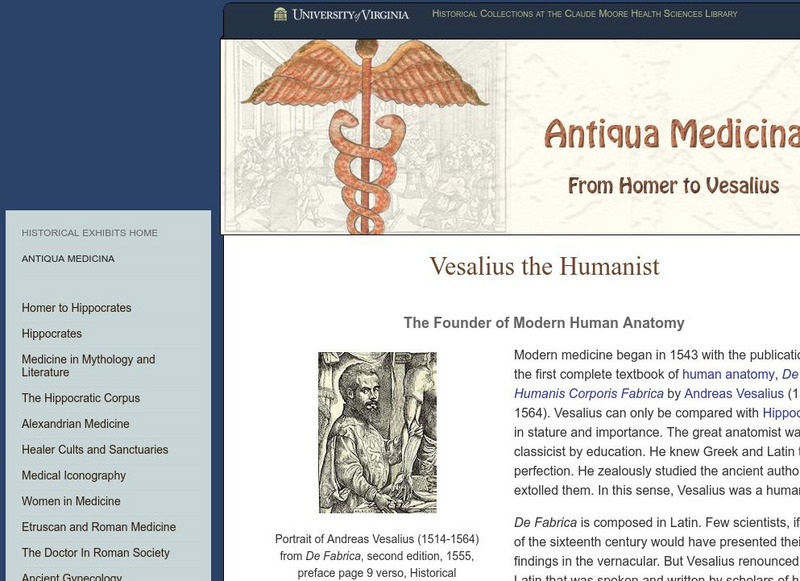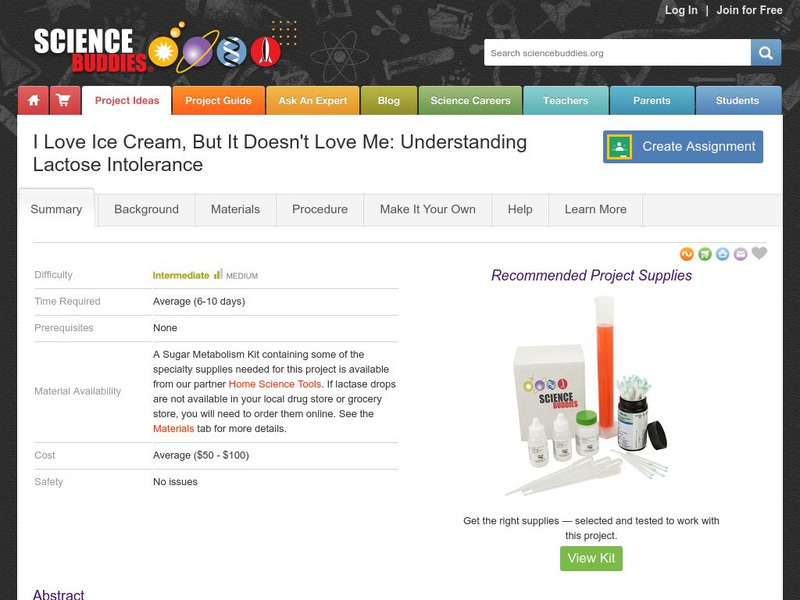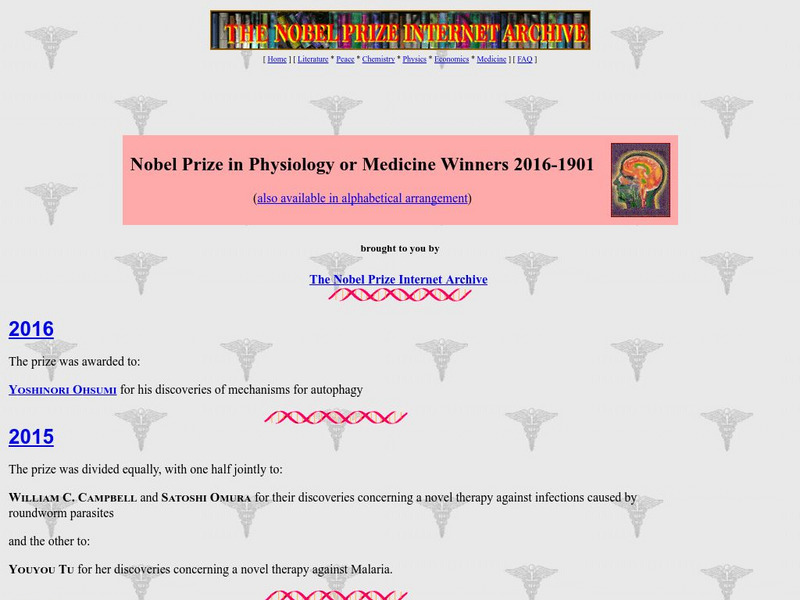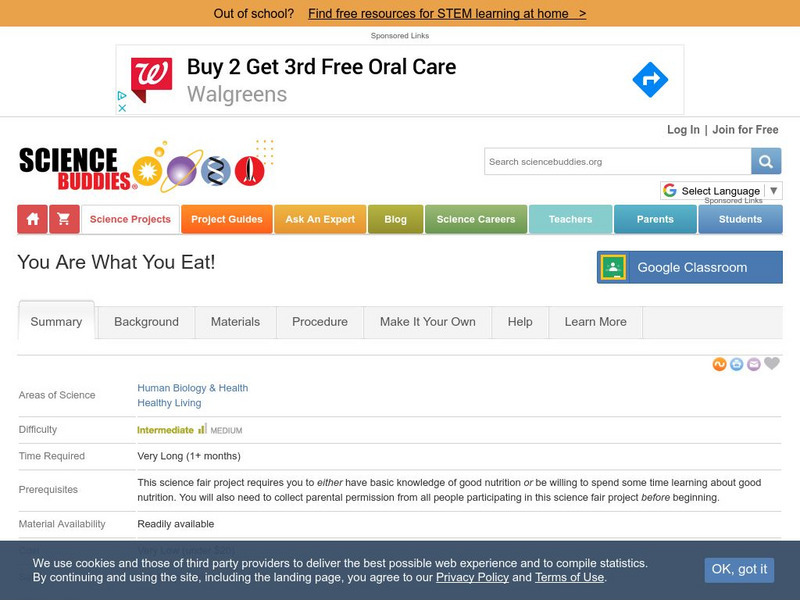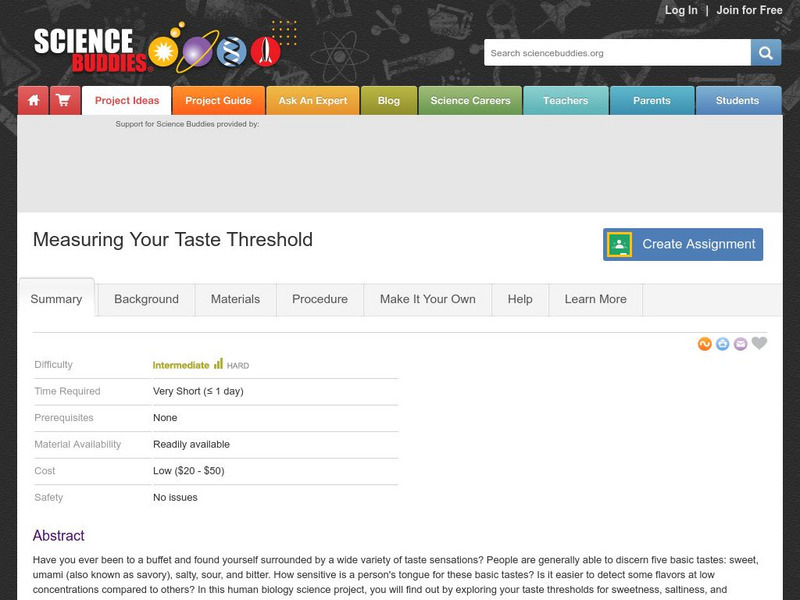Other
Story md.com: Cancer: Understanding What Is Cancer
An in-depth look at cancer and the human body. Learn about cancer on a cellular level, types of cancer, how genetics and lifestyle risk factors play a part in cancer growth, and much more.
TeachEngineering
Teach Engineering: Polluted Air = Polluted Lungs
To gain a better understanding of the roles and functions of components of the human respiratory system and our need for clean air, students construct model lungs that include a diaphragm and chest cavity. They see how air moving in and...
OpenStax
Open Stax: Forces and Torques in Muscles and Joints
From a chapter on Statics and Torque in a Physics textbook. This section of the chapter provides an in-depth discussion of forces and torque in the human body. We learn about muscular force, the importance of posture in preventing back...
Science Buddies
Science Buddies: Got Iron? Measure the Concentration of Iron in Water
Iron is an important mineral essential for good health. Iron deficiency can be a problem. In this science fair project, use a simple iron test kit to measure the concentration of iron in water. This experiement is explained clearly and...
CK-12 Foundation
Ck 12: Life Science: Human Digestive System
[Free Registration/Login may be required to access all resource tools.] Nutrients in the foods you eat are needed by the cells of your body. How do the nutrients in foods get to your body cells? What organs and processes break down the...
Northwestern University
Di Humani Corporis Fabrica
A historically significant translation of the groundbreaking text on human anatomy that changed the study of anatomy forever.
Other
Get Body Smart: Functional Anatomy of Skeletal Muscles
Brought to you by Get Body Smart, students can learn about the human musculoskeletal system through this easy-to-access tutorial. Sections include muscles that act on the arm, shoulder, forearm, wrist, palm, digits, anterior thigh,...
Harvard University
Harvard University: Neurosurgical Service
This site from Harvard University offers a rating system of diagnosing Parkinson's Disease. It also presents the Unified Parkinson Disease Rating Scale (UPDRS) which measures mentation, behavior and mood, activities in daily life and...
TeachEngineering
Teach Engineering: Brain Is a Computer
Students learn about the similarities between the human brain and its engineering counterpart, the computer. Since students work with computers routinely, this comparison strengthens their understanding of both how the brain works and...
Science Buddies
Science Buddies: Old Salty: Does Age Affect the Ability to Detect Salt?
Sauerkraut, pickled fish, pickled vegetables, kimchi, corned beef, processed cheeses, smoked lunch meats. Do you like these high-salt foods? What about your grandparents, do they? Do your grandparents seem to like most foods to be a bit...
Science Buddies
Science Buddies: Do You Have the Willpower to Taste Something Sour?
Do try this mouth-puckering science fair project to find out if people of all ages love sour tastes, or if there a difference between the sour preferences of kids and adults. You might be able to sell creations of your own based on your...
Science Buddies
Science Buddies: Now You See It, Now You Don't! Test Your Peripheral Vision
The survival of our ancient ancestors depended on their ability to use peripheral vision to find prey and to avoid predators. Almost everything we do-from riding a bike, to dribbling a basketball, to reading a book-depends on peripheral...
NASA
Nasa: The Brain in Space
This educators guide shows young scholars how the body's brain, spinal cord and network of nerves control the activities of animals and humans.
TeachEngineering
Teach Engineering: Unlocking the Endocrine System
Students learn how the endocrine system works and compare it to the mail delivery system. Students discuss the importance of communication in human body systems and relate that to engineering and astronauts.
The College of Physicians
The History of Vaccines: How Vaccines Work [Pdf]
The purpose of this lesson is to relate the action of vaccines to the human immune system. In this lesson, students will explore infectious disease and immunity and learn how vaccines help the body defend itself against infectious diseases.
University of Virginia
Univ. Of Virginia: Andreas Vesalius, the Humanist.
Information on Andreas Vesalius, who wrote the first complete textbook on human anatomy from researching ancient Greek anatomy. It also explains the humanist philosophy.
Internet History Sourcebooks Project
Fordham University: Modern History Sourcebook: Edward Jenner (1749 1823)
This site from the Modern History Sourcebook of the Fordham University provides a highly detailed biography of Edward Jenner (1749-1823 CE), noted physician and discoverer of the smallpox vaccine. Also presented are three original...
University of Utah
University of Utah: Cardiovascular Pathology Index
This site features a detailed index of photographs for cardiovascular pathology. You can see what a normal human heart looks like and what a sick one looks like too. Come and check it out.
Georgia Department of Education
Ga Virtual Learning: Psychology: Biological Foundations
Virtual learning course on human biology and brain function and how it affects our behaviors. Extensive collection of engaging materials, assignments, and activities for review.
Science Buddies
Science Buddies: I Love Ice Cream, but It Doesn't Love Me: Lactose Intolerance
Pizza, milk shakes, and ice cream sundaes all contain dairy products, therefore they cannot be eaten by the majority of people around the world. Dairy products contain the sugar molecule lactose, and the majority of people on the planet...
Other
Nobel Prize in Physiology or Medicine Winners 2008 1901
A list of the Nobel Prize winners in Physiology or Medicine (updated yearly). Click on the names for more information.
Science Buddies
Science Buddies: Deep Knee Bends: Measuring Knee Stress With a Mechanical Model
Prosthetic limbs and artificial joints can help people with disease or injury lead a normal life. Sports medicine or physical therapy is also an area that relates to this experiment. Either way, this project serves as a good match if any...
Science Buddies
Science Buddies: You Are What You Eat!
Thinking about improving your sports performance? Want to help friends and family make the most of their physical fitness activities? One factor to consider is food. Whether you realize it or not, what you eat does change your body. It...
Science Buddies
Science Buddies: Measuring Your Taste Threshold
Some people are more susceptible to flavors than others. This experiment asks you to test your threshold for the three types of taste our tongues are capable of experiencing: salty, sweet, and sour.





